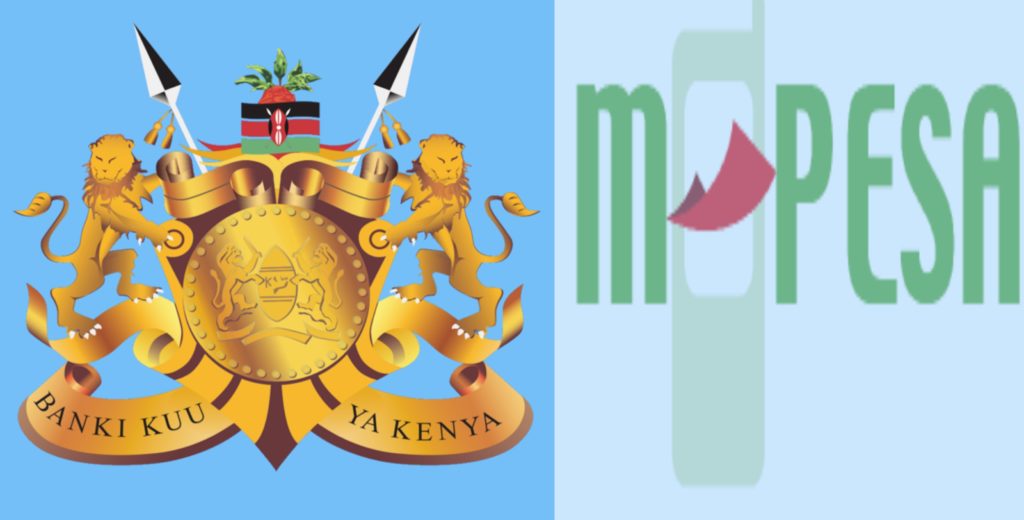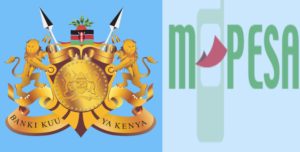The National Payments Strategy intends to increase choice for customers by reducing mobile money dominance.
The Central Bank of Kenya (CBK) will in the successive four years work towards lessening the M-Pesa’s dominance. By purposely increasing competition to offer choice to customers.
This is part of its second National Payments Strategy for the period between 2022 and 2025 revealed the other day to the public.
In the document, CBK says that choice will be a crucial feature of Kenya’s National Payment System ecosystem to motivate uptake and efficiency.
“Encouraging competition will be a key enabler for effective and viable payment options,” the report says.
M-Pesa, a mobile money payment platform owned by telecommunications company Safaricom, is the most dominant actor in this space.
It had 98.4 percent of registered mobile money customers as of the end of September last year, according to data from the Communications Authority of Kenya.
While Airtel Money and Telkom’s T-Kash share the remaining 1.6 percent of the customers.
Without mentioning M-Pesa, CBK says such dominance in the mobile payment ecosystem is hindering choice for customers.
It says a lot of customers have been unable to accept payment channels from other payment instruments, even when they have been less expensive and offered better services.
The threat of market concentration in the mobile payment ecosystem also affects negatively the government, CBK says.
“Market dominance in the mobile money space impacts the cost of delivering government services as both a large payer and recipient of payments,” the strategy report says.
The sentiments contained in the 89-page report are likely to stir up a storm.
For a long time, Safaricom’s competitor, Airtel Kenya, has been pushing for M-Pesa to be separated from the other telecommunications services to improve competition.
It has been argued that a lot of customers are not willing to cross from Safaricom to other mobile money service providers, due to the grip of M-Pesa. Which over time has become instrumental in shopping and payment of bills.
Airtel has also been pushing for Safaricom to be confirmed as dominant, a situation that would see the listed company share some of its resources with other actors.
However, Safaricom and the competition watchdog have argued that the only way the company can be declared dominant is if they abuse its market leadership.
Otherwise, the Competition Authority of Kenya says separating Safaricom’s business is akin to penalizing success.
The CBK payments strategy also examines the usefulness of new Central Bank Digital Currency, with the CBK recently issuing a discussion paper on the same.
Putting a lot of emphasis on cashless transactions, one of the goals of the 2022-25 strategy is to steer to the emergence of a fully digitized, 24-hour economy by improving the features of the new Real Time Gross Settlement (RTGS) system.
Moreover, under the strategy, the financial regulator will be hop ining at reviewing the current cheque-valued threshold to eliminate cheques.
Apart from choice, other core principles of the strategy include trust, security, usefulness, and innovation
The first payment strategy was meant for 2004-2008 and led to the formulation of RGTS and the introduction of mobile financial services. Which was a new area for the country, said National Treasury Principal Secretary Julius Muia.
“We were learning as we were running,” he said during the launch.
Dr. Muia said the strategy is “in alignment with the digital transformation agenda.”
CBK Governor Patrick Njoroge retraced the journey of Kenya’s payment system. “We have achieved a lot, but much more remains to be done,” he said, noting that even as technology changes and innovations continue to gather pace, they come with certain risks that need to be assessed.
Kenya’s payment strategy is heavily intertwined with its currency. And although cash is still king, there has been an increasing movement towards digital payments.
High digitization happened during the Covid-19 period when CBK came up with new measures aimed at discouraging cash transactions.
Modernization of the country’s payments system started 30 years ago, with two ATMs. But it wasn’t until the year 2007 that the mobile money service was launched.
FSD Kenya Chief Executive Tamara Cook said there was a 15 percent gap between men and women using M-Pesa in 2009, but the gap has since been narrowed to less than five percent.
“More needs to be done to ensure there is shared access to cash-in and cash-out points,” she said.
M-Pesa FAQs
Do customers need a Bank account to use M-Pesa?
No, M-Pesa is specifically designed to benefit customers who have no access to banks. Either because they do not have a bank account or because they live too far away from a bank branch. Each transaction is made with a mobile handset, enabling our customers to send money from any location.
What are the benefits of M-Pesa?
M-Pesa offers a safe, fast, and low-cost way to pay, receive, transfer and store money. M-Pesa works in real-time and digitally, making it faster and cheaper than traditional informal money transfer services (e.g. sending money on a bus) and safer since every transaction is protected and signed with a PIN.
What can customers do with their M-Pesa account?
M-Pesa customers can access a wide range of services, 24h a day, 365 days a year. These services save time and money and are delivered in real-time. For example, an M-Pesa customer can undertake some or all of the following transactions, depending on the country in which they are registered.
How much does M-Pesa cost?
Tariffs vary per country but all use a pay-as-you-go model, ensuring that customers are only charged for the actions that they complete. There is no additional charge for any of the SMSs automatically sent or received to facilitate M-Pesa services. The tariffs can be found on each M-Pesa country’s website.
Is M-Pesa regulated?
M-Pesa is regulated by the financial services regulator (usually the Central Bank) of each country in which it is offered. Each transaction made with M-Pesa is electronic and can therefore be monitored by Vodafone, which runs its bank-grade anti-money laundering system.
Does the M-Pesa agent hold the money deposited with them and is my money safe with them?
M-Pesa agents pre-buy mobile money so that they can sell it to customers in exchange for cash (so the customer can “cash-in”); they also do the reverse, selling cash in exchange for mobile money (so the customer can “cash-out”). The cash and M-Pesa balance that agents manage and store are always their own.
Who are M-Pesa agents and can they be trusted?
M-Pesa agents are recruited by Vodafone after a thorough selection and due diligence process. They are regularly monitored and re-trained, and Vodafone representatives visit them frequently.
What happens when customers lose their SIM cards?
If a customer loses his/her phone or SIM card, the funds in his/her M-Pesa account remain secure, and cannot be accessed without the secret PIN code. M-Pesa will restore these funds after providing a new SIM card and resetting the mobile phone account.



